Ryanair 'run like a communist regime', says pilot
- Published
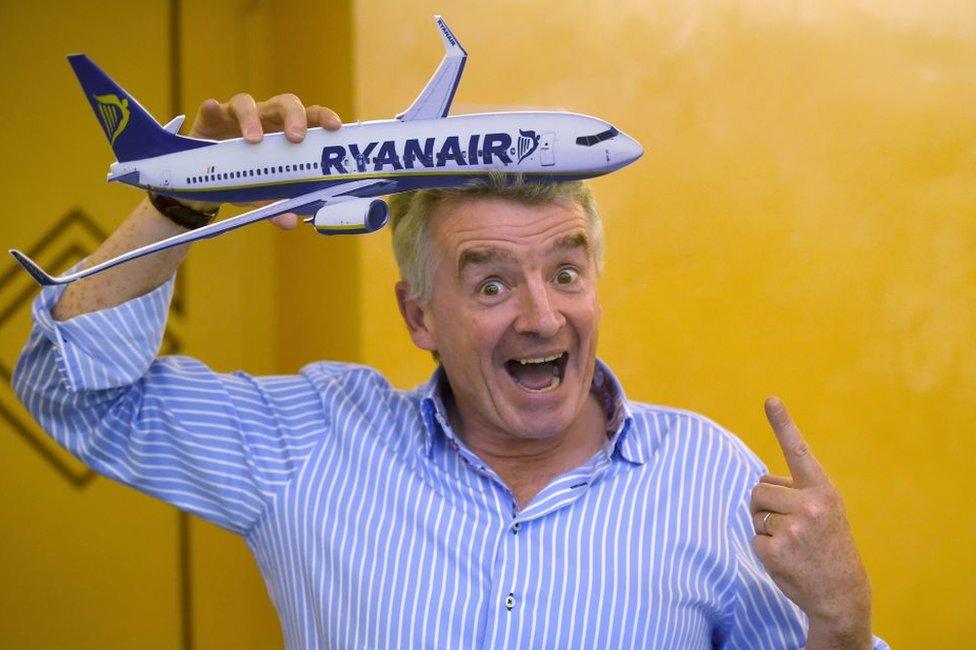
Michael O'Leary is chief executive of Ryanair
Cabin crew reduced to tears, pilots refused days off even for their weddings, and workers "left in exile" thousands of miles from their homes and families.
After budget airline Ryanair was forced to cancel thousands of flights - repeatedly blaming a rostering error rather than an alleged pilot shortage - chief executive Michael O'Leary has written to pilots offering them better pay and conditions.
Here, a long-serving pilot explains why the offer is "too little, too late", and explains why his colleagues are leaving the airline.

'Perfect storm'
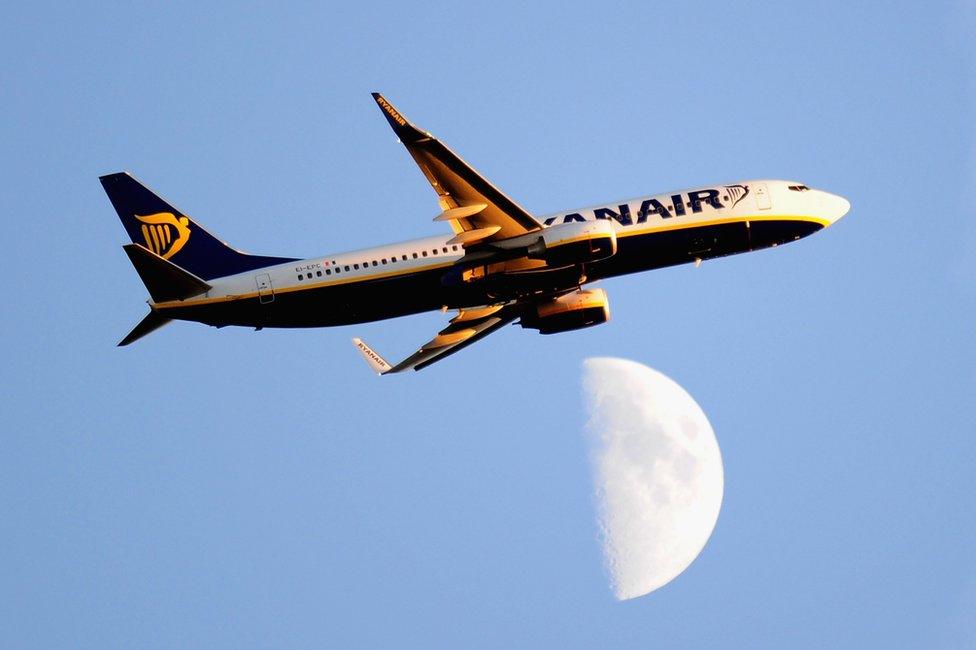
Ryanair said it had "messed up the allocation of annual leave", but pilots claim their colleagues are leaving to fly for other airlines
Mr O'Leary is partly right to say the cancellations have been caused by problems accommodating pilots' leave, says the pilot.
But this has been exacerbated by unhappy staff seeking new jobs with rival airlines, he believes.
"The Irish Aviation Authority has changed the rules where pilots cannot fly more than 1,000 hours in a rolling year, and the flight hours have to be taken from January to December, whereas Ryanair were using April to April.
"Ryanair have been given two years' notice but the company have left it to the last minute," the pilot says.
"It's been the perfect storm because, at the same time, other airlines are hiring crews, so they are leaving for pastures new.
"If it wasn't for the crews' goodwill I think this crisis would have come sooner, because for a long time now they've been asking people to work days off.
"Pilots are being used as the scapegoat to cover for incompetency in the upper management, and it's just totally disgusting.
"Instead of O'Leary standing up and taking the blame he's directing the problems and the blame at pilots and saying it's because we're taking leave and holidays.
"That's simply not true. It may be true in a very few cases, but people are working harder now than ever to try to make up this shortfall in crewing levels that we have."

'Toxic atmosphere'
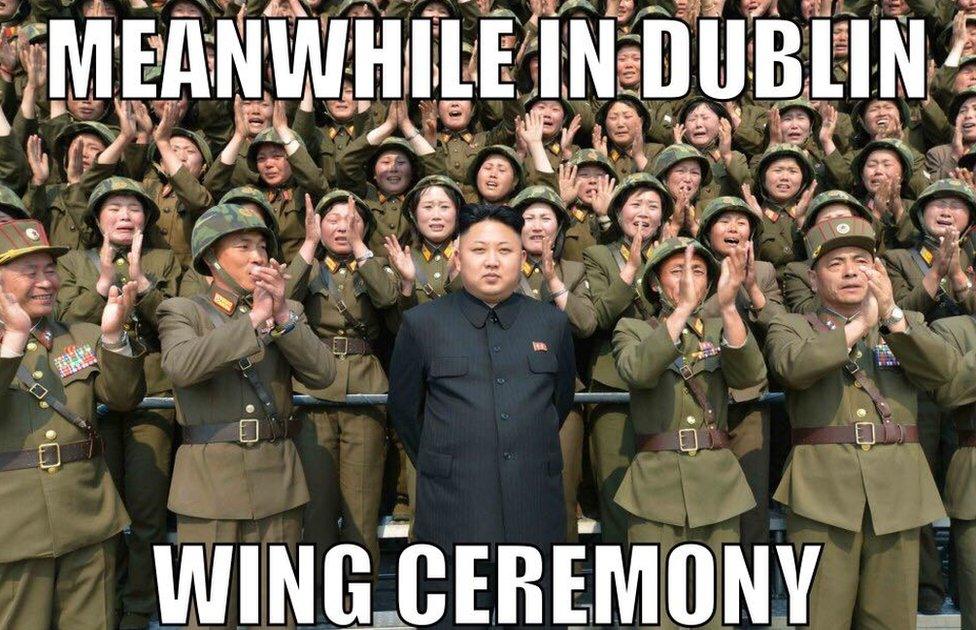
Ryanair staff have been sharing memes among each other that compare the management of Ryanair to the North Korean regime
The pilot said he and many other newly-qualified pilots joined Ryanair following the recession of 2008 when it was one of the few airlines still recruiting.
"A lot have remained here ticking along, but now that the market has become a lot more buoyant and there are other competitors offering much better terms and conditions, they've had enough and they are leaving," he said.
"On a local level the company is fantastic and I'm very fortunate to work with some very highly-skilled individuals.
"Then you have the management at the upper level and it's run like a communist regime in some respects. It's dictated from the top and you are just expected to get on with it.
"I know of colleagues that have had leave denied to get married and then these pilots rely on the goodwill and conscience of other pilots to cover their rostered flights so they can get married.
"This company will happily fire pilots to quell any uprising, even to the point where they would close a base, external or multiple bases to send a message to the rest: 'You just get on and do your job and keep doing what we tell you to do'.
"We have some memes that have been doing the rounds which we feel accurately portray the situation and feelings of the crew - comparing the company to the North Korean communist regime.
"The way they treat the staff is not much better, if not worse, than the way they treat their customers.
"People have just had enough of the toxic atmosphere that's been created here."
The BBC contacted Ryanair with these claims and a spokesman said it was "untrue" there was a toxic atmosphere among staff.

Working hours
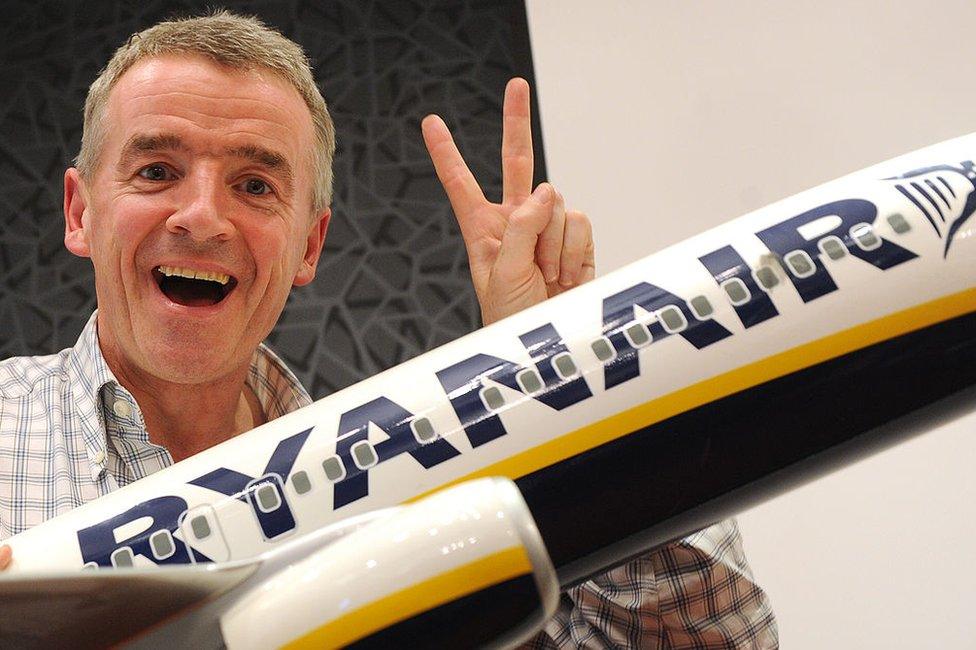
Ryanair chief executive Michael O'Leary has said he would "challenge any pilot to explain how this is a difficult job or how it is they are overworked"
Mr O'Leary has said pilots fly for no more than 18 hours a week. However, the British Airline Pilots' Association (Balpa) has said this "does not seem to have any basis in reality".
The pilot echoed the Balpa view.
"In reality our hours are much longer than that," he said.
"[Mr O'Leary] has divided the maximum amount of hours a crew can fly in a year, which is 900 hours, by 52 weeks.
"I typically fly between 30 to 40 hours a week. This is what is called 'flight duty' and starts from reporting to work to when we set the parking brake at the end of the day.
"This does not include turnarounds and post-duty paperwork, which we are not paid for.
"If Ryanair advertise to their customers that the flight leaves at five o'clock and arrives at seven o'clock then we only get paid for those two hours.
"We are not paid for the time spent getting back to base either. Sometimes it's a case that you can't get back on the same day and you are having to pay for a hotel out of your own money, then catch a flight the following day to get home or catch multiple flight connections if the base isn't particularly well connected."
Ryanair declined to comment on whether pilots are paid only for the advertised length of the flight. It has said previously that pilots receive "great pay and industry-leading terms and conditions".

Cabin crews
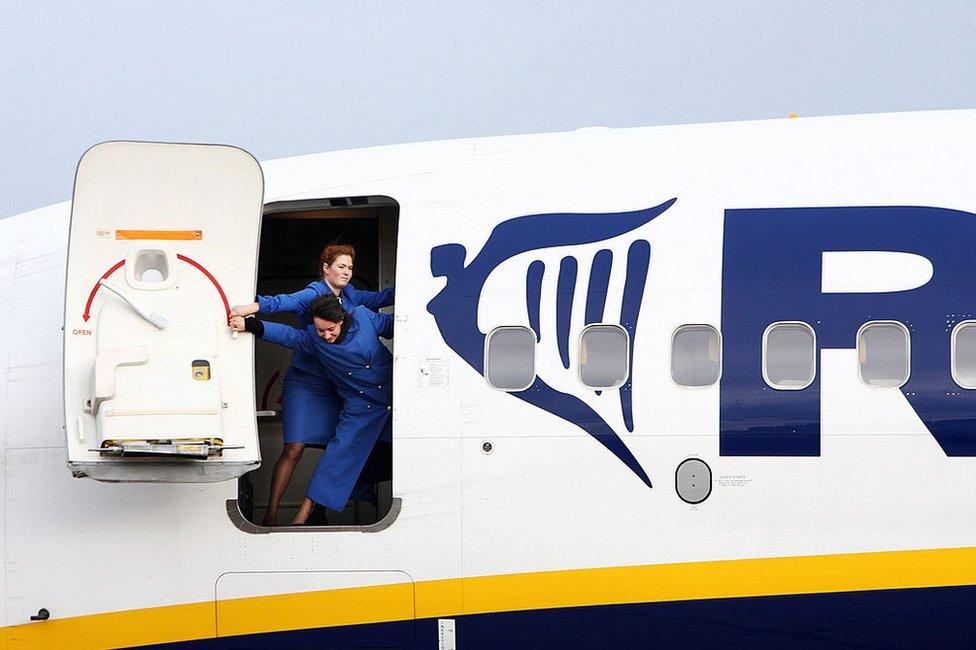
There is a lack of basic benefits such as crew meals and drinks, the pilot said
"Cabin crew are employed under similar conditions, on agency contracts, and the things I've seen are pretty disgusting," said the pilot.
"They are given unachievable sales targets, and if they've not reached sales targets they will be berated in a debriefing afterwards by a base supervisor, who is acting as a minion for Dublin.
"It's known for cabin crew to cry after their debriefings. I've seen them lined up almost like a military parade before being inspected, having their bags searched and all kinds of things.
"These people are not earning very much money - around £1,000 a month.
"In some bases the cabin crew even have to rent one room together, and sleep in the same bed - maybe one person who works early shifts and one person who works late shifts - because they are not paid enough to even afford their own accommodation in those particular areas.
"It's quite common for them to be threatened to be moved to a less desirable base, further away from home, unless their sales improve.
"There is also a lack of basic benefits - no free bottles of water, coffee or tea and no crew meals. All of this needs to be brought to work by the pilot and it's the same for cabin crew.
"They provide a water dispenser at every crew room, where you need to take an empty bottle to fill up. You also pay for your own uniform through a Ryanair-approved supplier."
The BBC asked Ryanair to comment on cabin crew being threatened and berated for not meeting sales targets, not being able to afford accommodation and sharing beds with colleagues. Ryanair responded: "These claims are untrue."

'Mass exodus'
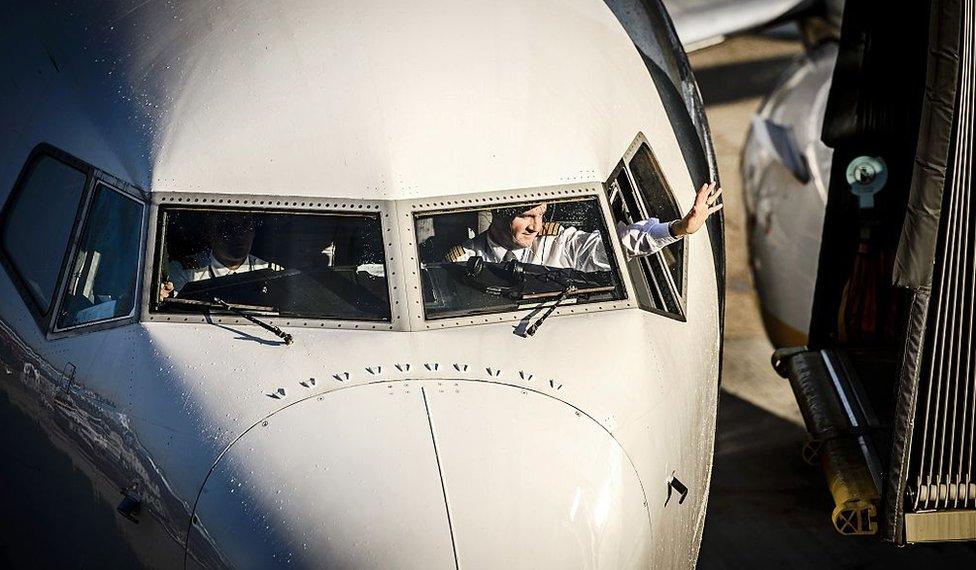
The British Airline Pilots' Association (Balpa) has "urged Ryanair to do more to encourage pilots to stay with the airline"
"Some competitors do have similar work arrangements, but nothing to the extent that Ryanair do," the pilot said.
"They've copied the low cost business model from Southwest Airlines [in the United States] but gone to the extreme.
"Southwest make good profits and it's been ranked as one of the best airlines in America to fly for, as they take good care of crews and pay them well.
"However, Michael O'Leary seems to have taken enjoyment from taking the low road and taunting his customers, external and crews because he knows he can get away with it.
"Passengers want a British Airways service, but ultimately when it comes to booking they will book with Ryanair because he's offering a 10-euro seat.
"However, the tactics of ruling by fear and divide and conquer are outdated in the pilot market we're in now.
"Now, with the invention of WhatsApp people are openly discussing what's going on, and people are starting to see that there is more unity coming together.
"If there's no improvement here, and the management continue to bury their head in the sand, many people will continue to leave and the mass exodus will just continue."
The pilot said Mr O'Leary's offer of better pay and conditions "does not come across as sincere and genuine".
"People want to stay, they want to work and do a good job, but management are treating us like the enemy when we are the assets of the company," he said.
"We are an airline and without pilots and cabin crew the aircraft go nowhere."
In his latest letter to pilots, Mr O'Leary said he had interacted with many pilots over 30 years. "Over this period I have always tried to be courteous, respectful and grateful for the outstanding job that you do, and this will remain my approach."

The rise of Ryanair
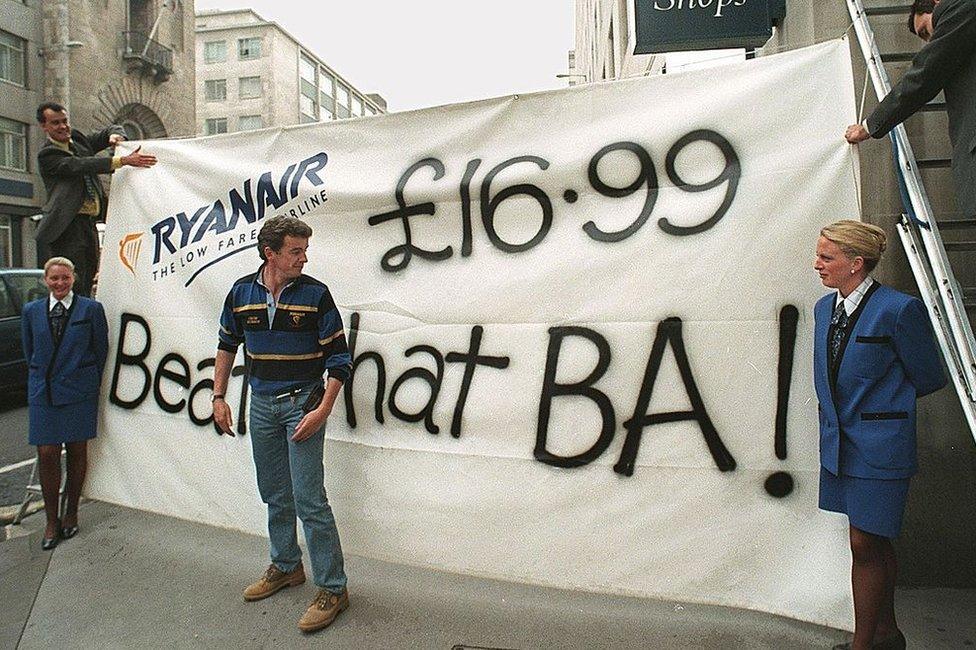
Michael O'Leary, pictured outside a British Airways travel shop in 1998, has taken cost-cutting culture to the extreme, said the pilot
Ryanair began operating in 1985, originally flying daily from Waterford in Ireland to London Gatwick
In the early 1990s, the airline's founder Tony Ryan sent Michael O'Leary, an accountant by training, to Texas to find out how Southwest Airlines was making profits with lower fares
Mr O'Leary, now chief executive, took cost-cutting culture to the extreme, even telling his staff to take pens from hotels and legal offices instead of buying them, external
Ryanair now has 4,200 pilots flying a fleet of 400 Boeing 737-800 aircraft between more than 200 airports in 33 countries
It reports carrying 131 million passengers a year, more than any other airline in Europe, and operates more than 2,000 flights a day

The BBC agreed not to identify the pilot.
- Published6 October 2017
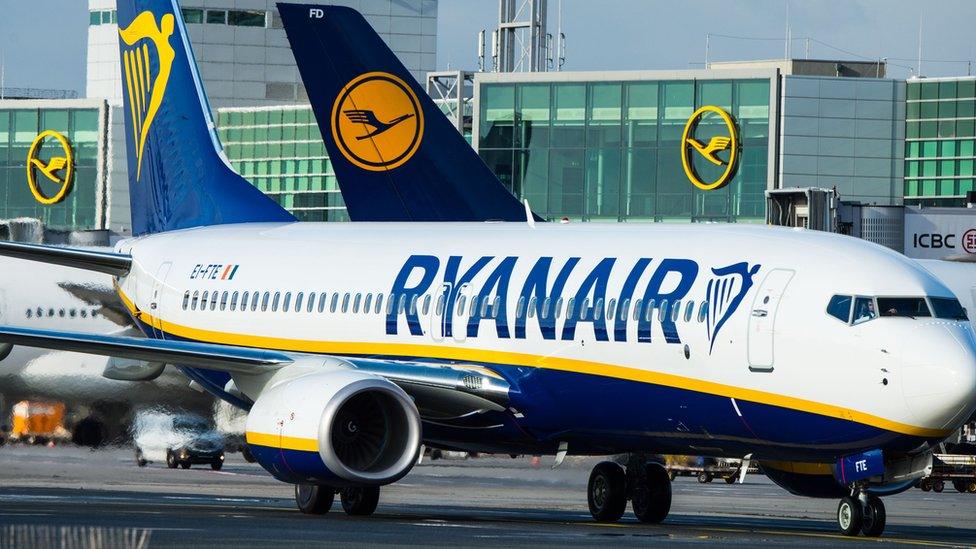
- Published28 September 2017
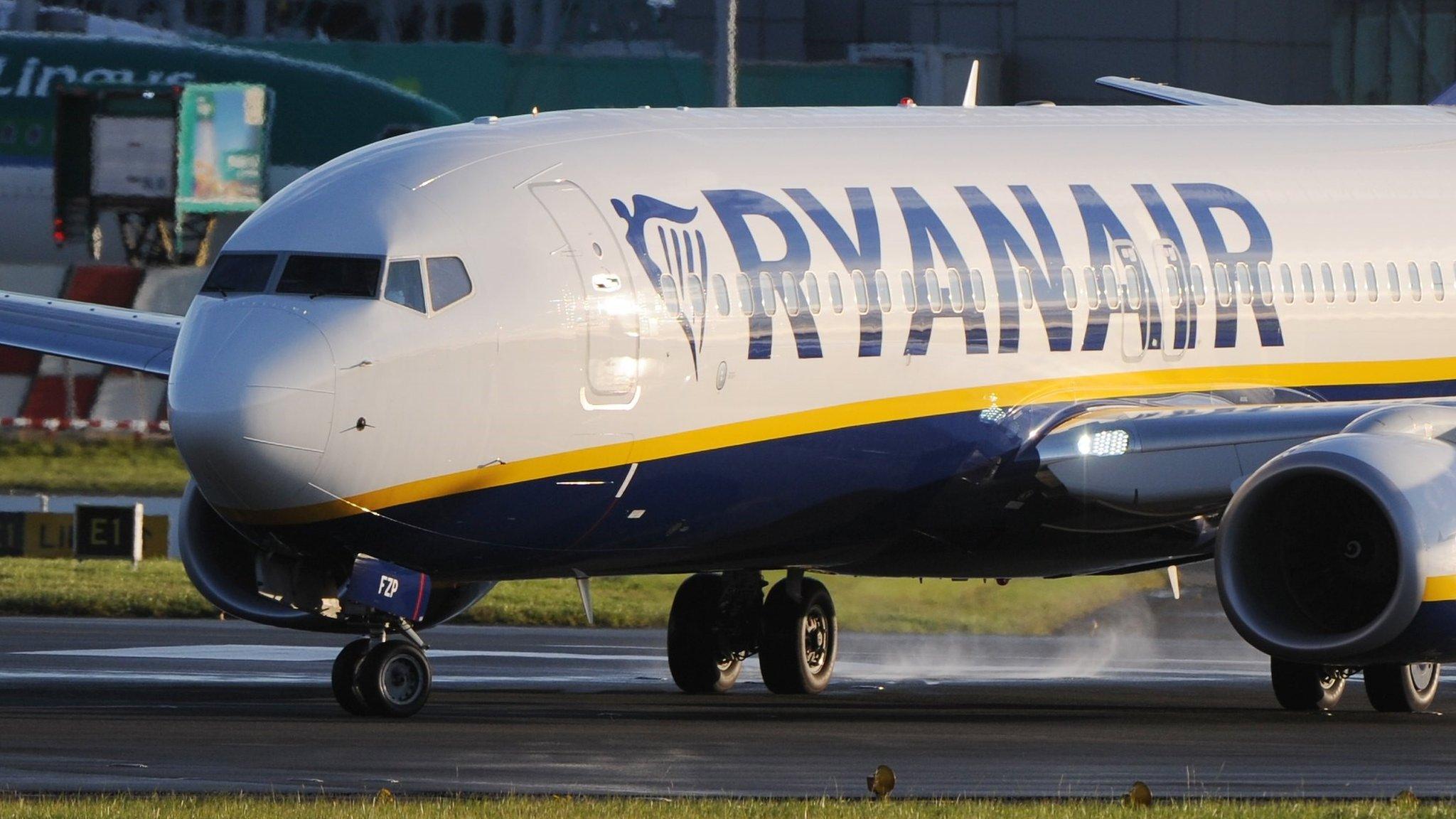
- Published28 September 2017
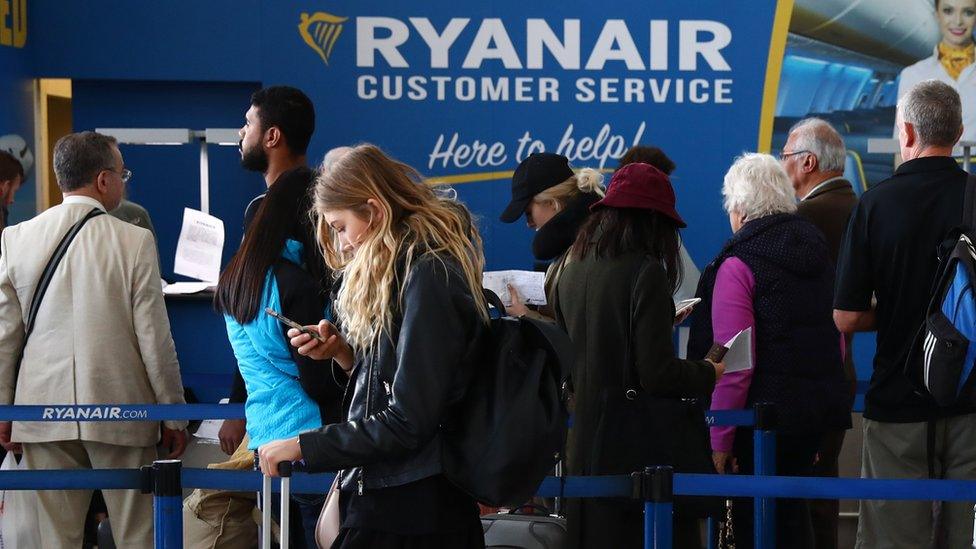
- Published27 September 2017
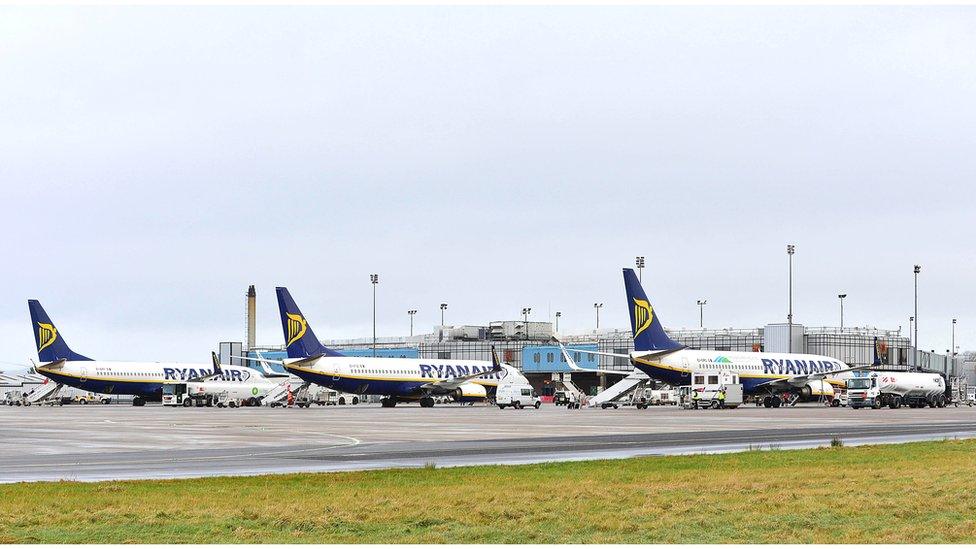
- Published28 September 2017
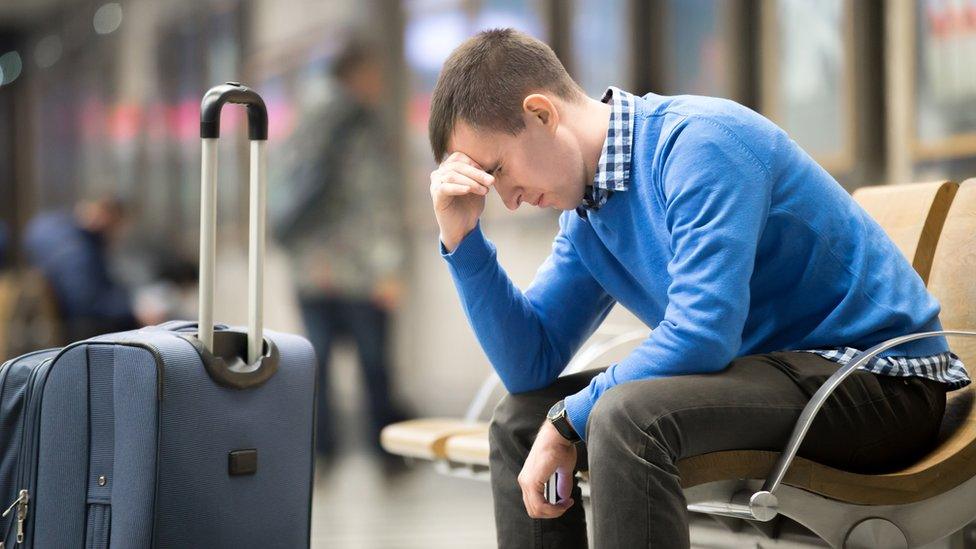
- Published27 September 2017

- Published21 September 2017
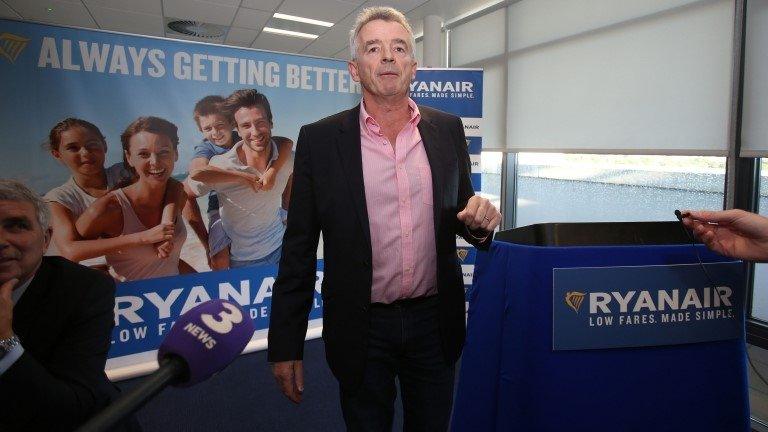
- Published20 September 2017
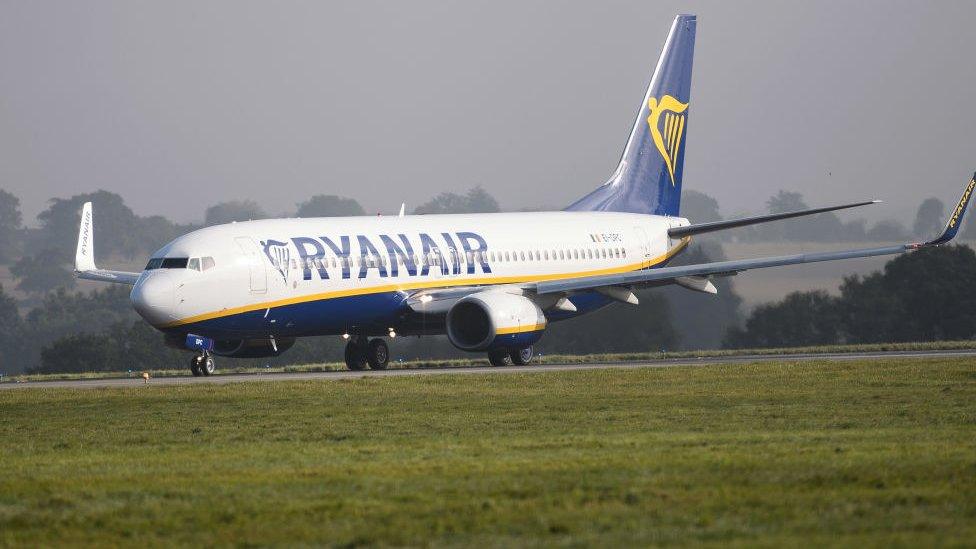
- Published20 September 2017
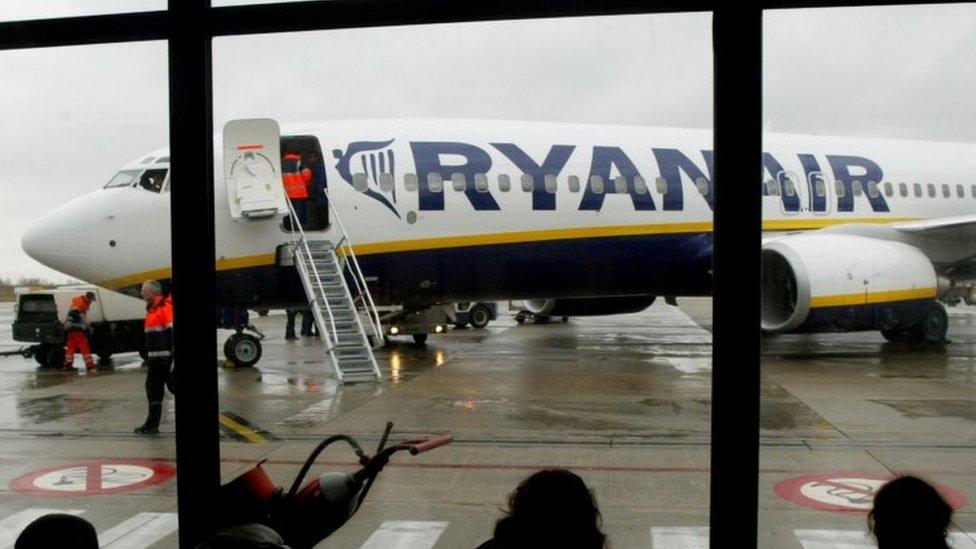
- Published19 September 2017
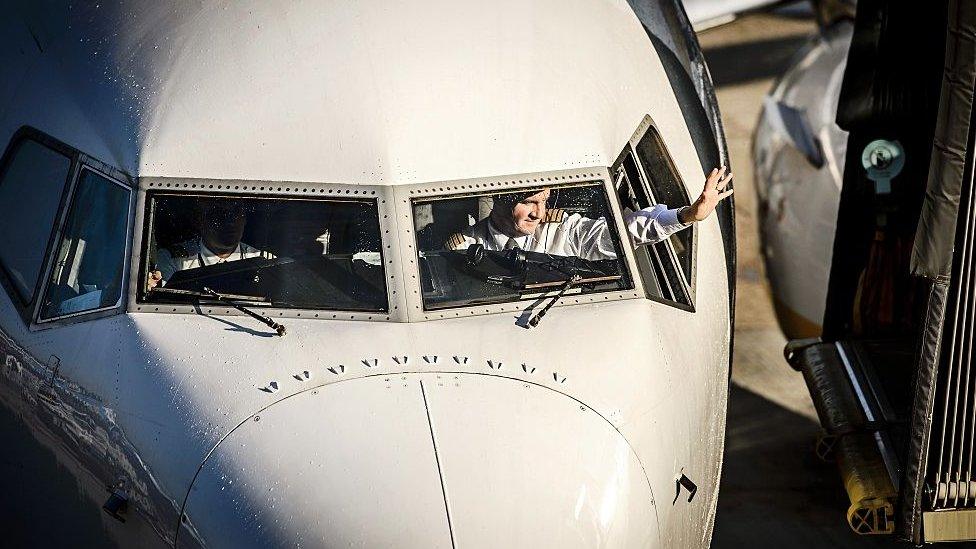
- Published18 September 2017
